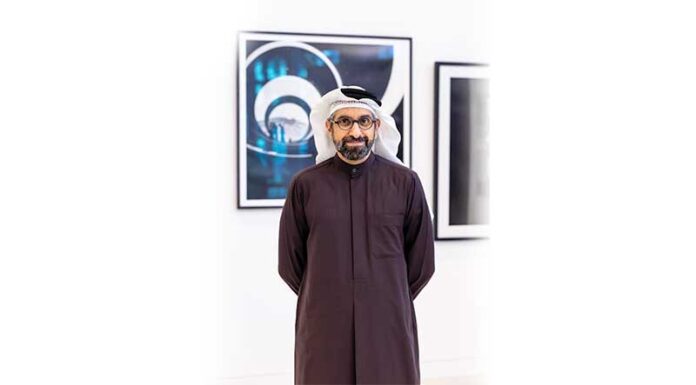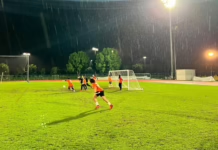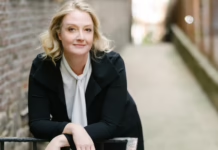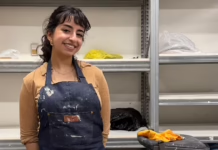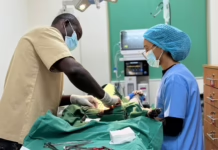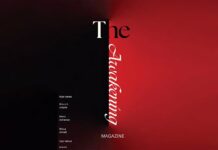By Bissane El Sayed
“I established Barjeel as an extension of storytelling, storytelling from the Arab world … But rather than just words or politics, I’m looking at art,” said Sheikh Sultan Sooud Al Qassemi.
Sheikh Al Qassemi is the founder of Barjeel Art Foundation and currently a professor at the American University of Sharjah teaching a course in Politics of Modern Middle East Art, as well as a columnist and researcher.
The Beginning of the Story
His journey with art started around 30 years ago in France. He became interested in art and felt that he needed to shed light on art from the MENA region.
“My interest in art started when I was a student in Paris in the 1990s. I was visiting museums and started to wonder if we have this kind of art back home, in the Arab world, in the Middle East. I started visiting galleries in the UAE, Dubai, Abu Dhabi Cultural Foundation, and Sharjah Art Museum. That helped me form my interest in art.”
By 2002, Sheikh Sultan began purchasing art. The first two pieces he bought were a photograph by the late son of the former ruler of Sharjah, Sheikh Khaled bin Sultan, and a watercolor drawing by Abdul Qader Al Rais, who is a prominent Emirati artist.
Art and Value
From a scholar and an art enthusiast’s point of view, Sheikh Sultan emphasized that members of the Middle Eastern community must know and understand the value of their art. That is why he decided to dedicate Barjeel Art Foundation to educate them more, and to provide a platform for Middle Easterners to learn about the rich art that emerges from their region, and for them to embrace and appreciate it. Barjeel Art Foundation has always housed artists from the MENA region, making it a stage for them to publicize their culture and background.
He found that literary contributions revolving around art are “ultimately … the best measurement of the importance of an artwork,” and raise its value while allowing opportunities for it to be appreciated by people of a similar background and those foreign to it.
“There are so many new books being published by Barjeel (ourselves), by Sharjah Art Foundation, by independent writers, and by universities,” said Sheikh Sultan, shedding light on the efforts dedicated to studying and teaching art.
The contribution of his foundation and Sharjah Art Foundation is important as it provides the youth with access to many resources.
When asked about the value of art pieces, Sheikh Sultan answered “it’s very difficult to put value on an artwork, there are … different ways of valuating art.”
On the level of individuals, art could be valued on a personal level based on memories, significance and people linked to that work. He provided an example of the first two works he bought. However, marketwise, the value depends on multiple factors, as Sheikh Sultan explained, “when there’s a limited amount of art, coupled with a high degree of scholarship and writing and literature, it makes the artwork very valuable.”
In his collection, he described some pieces that are very valuable. The first one is “The Last Sound,” a painting by a Sudanese artist Ibrahim El Salahi, another is a sculpture by Jawad Saleem, an Iraqi sculptor who died at the young age of 42 and a couple of works by the Lebanese artist Saloua Raouda Choucair. Despite living for over 100 years, Choucair’s works are valuable due to their rarity, and the fact that they are displayed in major world museums. The latter is another measurement for evaluating art’s worth.
Sheikh Sultan Sooud Al Qassemi said that especially in terms of literature Arab art is getting prominent, especially because of foundations and entities concerned with art that are contributing to these advancements. The target audience of Barjeel is Middle Easterners, and then other communities.
“You feel proud that somebody from my region who speaks my language and understands my culture [are] being appreciated,” he elaborated.
Social media is also an indicator of the youths’ change of attitudes towards Middle Eastern art, in which many accounts are operated by young people, he added.
He said, “I imagine myself, a 22-year-old in the year 2000, and had social media … I would create an account and post about art from my region.”
Teaching at AUS has been a positive experience for Sheikh Sultan. When asked about his experience, he answered “AUS students are very keen to learn … I have never taught in a place where the students were so keen on doing extra activities … which I think reflects very well on them, showing that they’re very social, that they’re very dynamic, outgoing, adapted, adapting to new environments.” He concluded, “so far, it’s super positive experience and [I am] very happy.”



